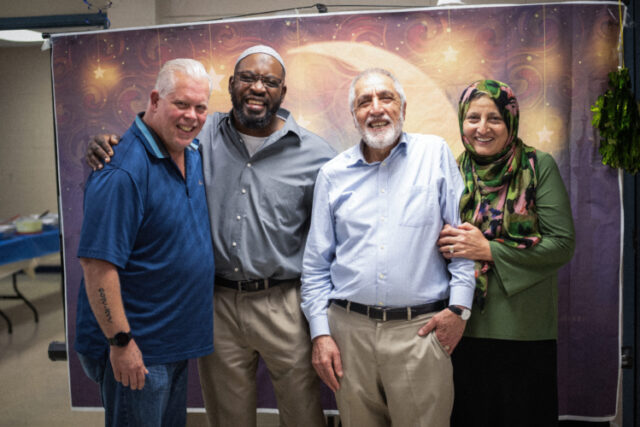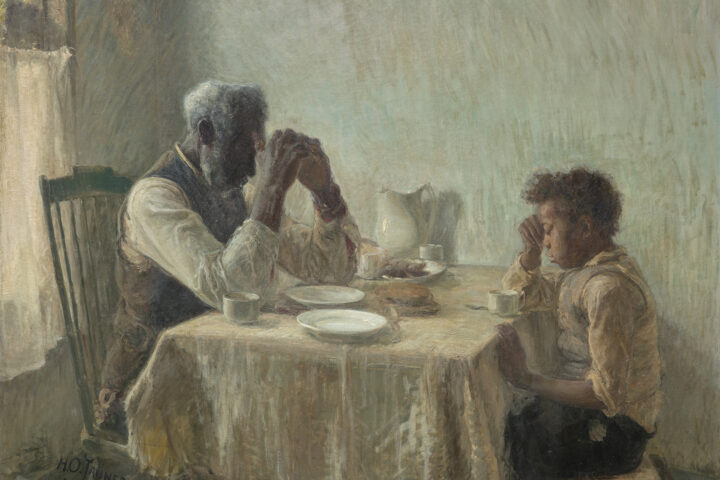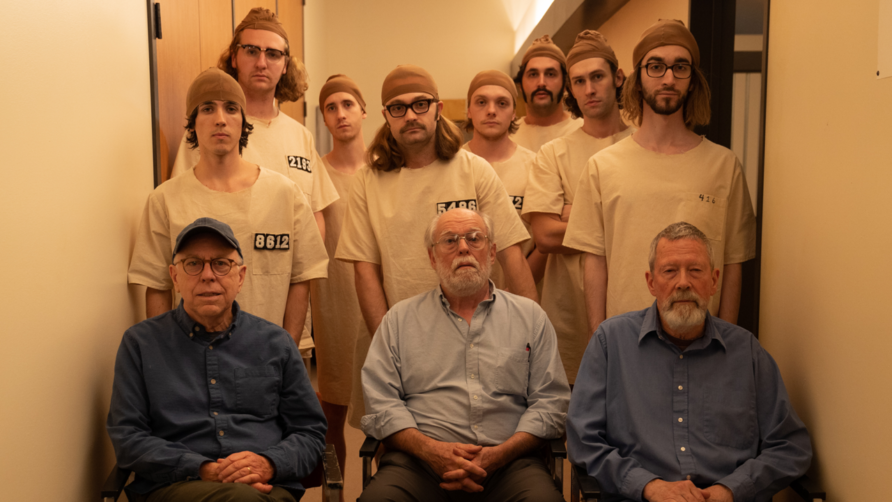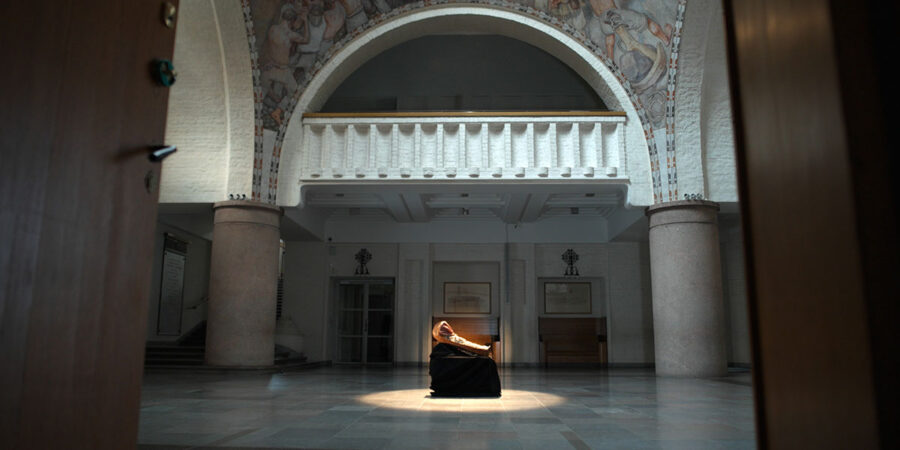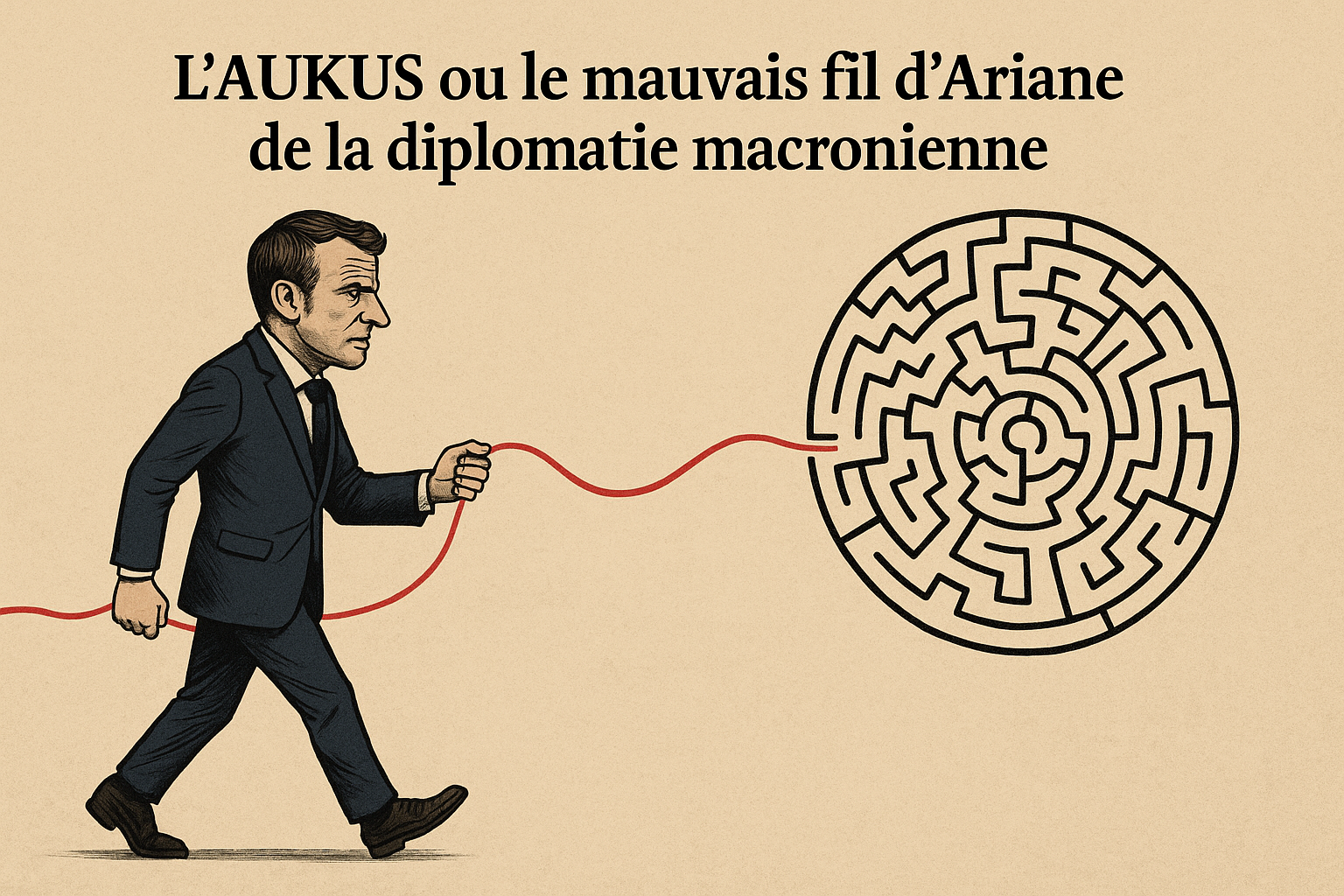Stranger at the Gate
By Beverly Andrews
A Story That Bridges Divides
In our increasingly polarized world, few stories manage to bridge the gaps between our ever more fragmented communities. Stranger at the Gate does just that. This short documentary, directed by Emmy-nominated filmmaker Joshua Seftel, tells the harrowing yet redemptive story of Richard McKinney, a traumatized American veteran who returns from military service consumed by a visceral hatred of Muslims.
That hatred drives him to contemplate the unthinkable: a mass attack on his local mosque, where he hoped to kill at least 200 people. He later admitted that he believed anything less would “not be worth it.” Seftel’s film takes viewers on a chilling journey into the mind of a would-be domestic terrorist—and then reveals a powerful transformation.
The Director’s Inspiration
Seftel was inspired to make Stranger at the Gate after reading an article about McKinney’s experience. Intrigued, he reached out immediately. The resulting documentary became the latest in a series of short films Seftel has directed in the aftermath of 9/11.
Speaking at a recent Q&A, Seftel explained his motivation:
“I think growing up Jewish in America, I was impacted by anti-Semitism; it was a fact of life. In the wake of 9/11, I saw the same thing happening to the Muslim community, and I wanted to create work that could serve as a counterbalance.”
Seftel’s earlier films aimed to challenge the toxic rhetoric spreading across the country, and to portray the Muslim community in a positive, humanizing light. These shorts were primarily distributed on YouTube. But with Stranger at the Gate, Seftel hoped the film—and its underlying message—would reach a broader audience.
A Moment That Sparked a Plot
The film explores the incident that triggered McKinney’s rage—a seemingly minor moment. One day, his daughter returned from school and mentioned that a classmate’s mother had picked him up wearing a face veil. She recalls being curious rather than disturbed, finding the sight unusual but intriguing. However, her father’s reaction was drastically different—furious, even terrifying.
That single moment became the catalyst for McKinney to begin planning an attack on the local mosque. As part of his plan, he decided to visit the mosque to assess his target. What he encountered instead was an open, welcoming community.
Despite his imposing presence—tall, heavily tattooed, and brimming with hostility—the mosque’s president greeted him warmly. In a moment of unexpected grace, the man dropped to his knees and embraced McKinney’s legs. In that instant, all of McKinney’s hatred evaporated. He not only abandoned his plan but began returning to the mosque regularly. Eventually, he converted to Islam.
A Journey of Transformation
Seftel describes Stranger at the Gate as a film about the transformative power of love—how it can break down even the most hardened heart and turn a potentially deadly situation into a story of redemption.
Despite the community learning of McKinney’s original intentions, they embraced him. In a remarkable turn of events, McKinney was later voted in as the mosque’s president—the very place he had once plotted to destroy. He now travels the country sharing his story, offering a message of reconciliation and healing.
A Broader Warning
While McKinney’s story ends on a hopeful note, it also serves as a cautionary tale. For many returning veterans, the trauma of war remains unresolved. If left untreated, those wounds can fester—with potentially catastrophic consequences.
Stranger at the Gate is more than a documentary. It is a testament to the capacity for change, the strength of community, and the enduring belief that compassion can conquer even the deepest hatred.
- Shtisel: an Israeli drama series like no other
- FLARE 2022
- Cinema | Series
- Voices from the Rainbow
- Sundance 2022

